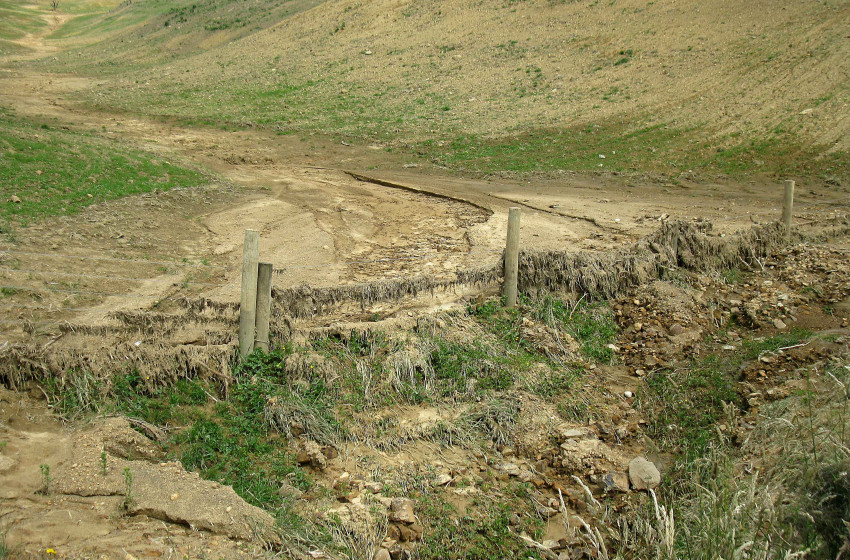Concern over impact of winter crop grazing on Otago Rivers
- Otago
- 22/05/2017
- Richie Cosgrove

A new report by Otago Fish & Game has highlighted the major problems facing South Otago streams from sedimentation caused by winter cropping practices.
With the prospect of high winter rainfalls rapidly approaching, Fish & Game want to highlight the impact that sedimentation has on the health of rivers and streams
Above Right: Cultivation of hill country runs a high risk of sediment run-off as evidenced here by the debris caught in this fence line.
Fish & Game wants the Otago Regional Council (ORC) to ramp up its monitoring and compliance to address an issue which has been a growing concern for the last 10 years.
Otago Fish & Game has supported university studies of various waterways in South Otago to build a picture of what is happening with land use intensification.
Otago Fish & Game Officer Morgan Trotter says “Sediment is a major stressor of stream life, it smothers invertebrate habitat and fish eggs and the data shows sediment levels in many South Otago streams are too high resulting in degraded aquatic ecosystems and fisheries”.
This view is reinforced by a recent scientific paper from the University of Otago on the health of South Otago streams.
A major source of in-stream sediment is winter cropping practices such as strip grazing of stock, with insufficient riparian buffers or on land which is too steep.
This results in overland sediment laden run off entering waterways in rain events.
As most of the sediment run-off from crop paddocks occurs during these events impacts are difficult to monitor and regulate and are not picked up routine water quality monitoring.
While there are signs that intensive farming practises are improving and there are some great community initiatives such the Pomahaka River Care Group, the ORC needs to apply more resources addressing the sediment run-off problem from grazed winter crop paddocks.
Left: The Catlins River in South Otago suffering sediment pollution.
Winter cropping on steep paddocks is a particularly high risk activity.
Winter cropping without a sediment control measure in place is considered a prohibited activity, however what constitutes an acceptable control measure is not well defined.
The result is token or insufficient mitigation efforts (riparian buffers that are too narrow to capture sediment run-off) and ongoing sediment pollution of waterways during heavy rainfall events.
According to Trotter “the priority should be to stop overland sediment runoff to waterways occurring in the first place.
Until this is achieved we will not see meaningful improvement in water quality and stream health. The ORC should give firm advice on what is required to stop sediment run-off and back this up with strong regulatory action where required.
Trotter says “We should accept that in some steep hill country sediment loss cannot be captured without exceptional mitigation efforts and therefore this type of land is unsuitable for winter cropping”.